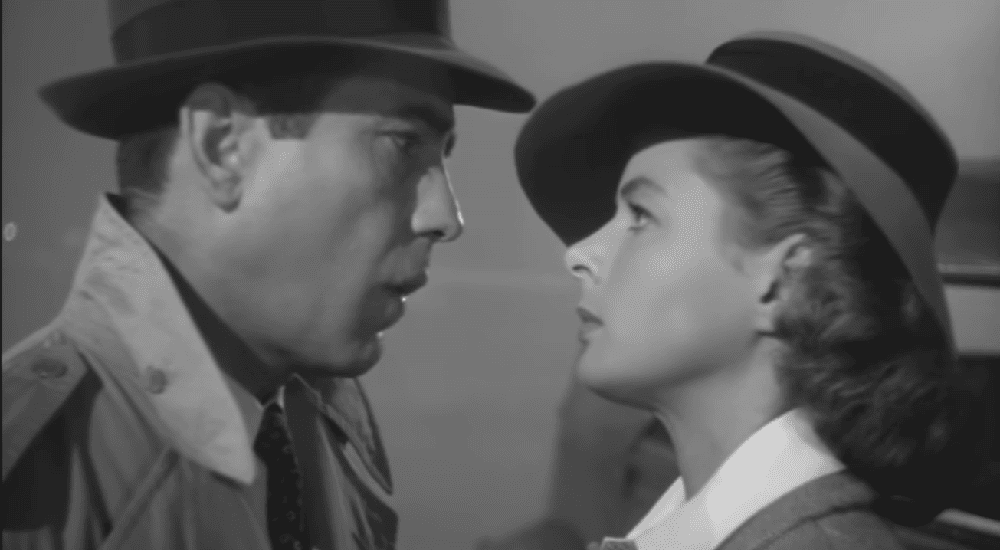
The Three Levels of Story
A Great Story will soar and resonate because it embodies three levels:
EXTRAPERSONAL (THE PLOT)
INTERPERSONAL (THE RELATIONSHIPS)
INNER PERSONAL (GROWTH OF THE MAIN CHARACTER)
EXTRA PERSONAL :
In the first act of Casablanca, screenwriting twin geniuses Julius and Philip Epstein do a masterful job of setting the stage with an enormous amount of necessary exposition. (PLOT) The writers establish that Casablanca is a way out of war-torn Europe. It’s filled with desperate people who are vulnerable to all kinds of corruption and criminals ready to take advantage of desperate Europeans fleeing Nazi Germany.
INTERPERSONAL (CHARACTER):
With all this accomplished, take a look at how they introduce Rick Blaine. The camera records his signature on a check, then pans up to the face of Humphrey Bogart, a true Movie Star. Think about this when you write your Main Character. Think of the Main Character as the Movie Star of your story.
More PLOT here: Rick agrees to hold the letters of transit for Ugarte, who plans to leave Casablanca that night. The letters of transit are the McGuffin in this story. What’s a McGuffin?
In fiction, a MacGuffin is an object, device, or event that is necessary to the plot and the motivation of the characters, but insignificant, unimportant, or irrelevant in itself. The term was adopted by Alfred Hitchcock, and later extended to a similar device in other fiction.
INTERPERSONAL (RELATIONSHIPS)
When the beautiful Yvonne has too much to drink, what does Rick do? He makes sure she gets home safely. This addresses the first of the Four Traits of a Hero, which is that All Heroes Care about Others. Rick is an archetypal good guy, who would never take advantage of a woman.
INNER PERSONAL (TRANSFORMATION):
Several times in this story, Rick states, “I stick my neck out for nobody,” revealing his character flaw. We later find out why he feels this way, and we know he has good reason to feel this way, but we hope he may change in the course of the story. This is his character flaw. This is Rick’s INNER PERSONAL story, his journey toward redemption.
When you revise your story, each chapter should contain more than one level of story value. Use this as a brief checklist to give your work the greatest depth.
A great chapter will:
Move the Plot forward (EXTRAPERSONAL)
Advance a relationship (INTERPERSONAL)
Begin/Continue the transformation of the Main Character (INNER PERSONAL)
